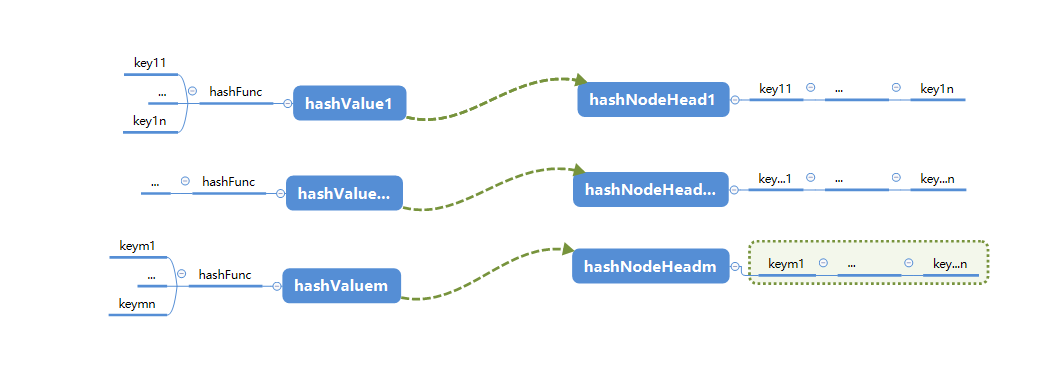dict:
dictKey -- > dictVal
example:
dictEntry *dictFind(dict *d, const void *key)
Key is like a index which to find the real entry.
how to find:
depend on the construction of dict.
if dict is constructed by arr then we get arr[i]. key is not integer usual and here the array is a map.
if dict is constructed by hash table, then we get hash table value.
redis code dictFind:
typedef struct dict {
dictType *type;
void *privdata;
dictht ht[2];
long rehashidx; /* rehashing not in progress if rehashidx == -1 */
int iterators; /* number of iterators currently running */
} dict;
typedef struct dictht {
dictEntry **table;
unsigned long size;
unsigned long sizemask;
unsigned long used;
} dictht;
dictEntry *dictFind(dict *d, const void *key)
{
dictEntry *he;
unsigned int h, idx, table;
if (d->ht[0].size == 0) return NULL; /* We don't have a table at all */
if (dictIsRehashing(d)) _dictRehashStep(d);
h = dictHashKey(d, key);
for (table = 0; table <= 1; table++) {
idx = h & d->ht[table].sizemask;
he = d->ht[table].table[idx];
while(he) {
if (dictCompareKeys(d, key, he->key))
return he;
he = he->next;
}
if (!dictIsRehashing(d)) return NULL;
}
return NULL;
}
key -> hashValue -> &hashMask -> hashIndex -> hashTable[hashIndex] (hashTableEleList[idx]) -> hashTableEleList[idx][j]
dictKey ----------------------------------------------------------------------------------------------------------------------> dictVal
why hash:

no hash table , store m * n elems.
hash, store m list head.
seraching, storing...
比如 dict 是个管理仓库的,仓库管理员按客人的姓名笔划来分架子。李一一来取货,dict算下李的在8号架子上,但是是8号架上的哪个柜子,要一个个来查看,只能根据姓名来一一对比了,最终找到客人的柜子,那个大的东西,肯定不好拿了,直接告诉李一一你的柜子地址就好了,让李一一去自己去对这个柜子中的东西操作。